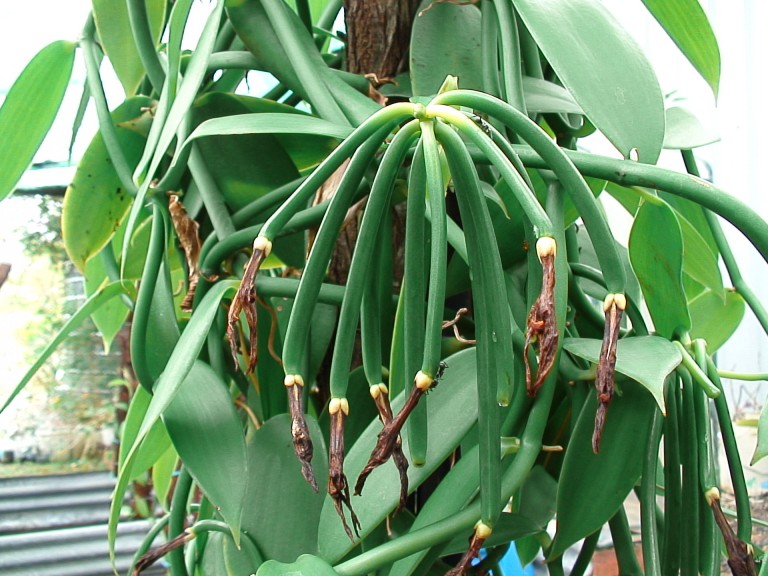Uganda, the world’s fourth-biggest vanilla exporter, is boosting output to benefit from prices for the flavoring that’s more valuable than silver and have forced growers to hire armed guards to deter thieves.
The landlocked East African nation will produce about 100 metric tons this year, with potential to double that in future, according to Aust & Hachmann Canada Ltd., the world’s oldest vanilla company. While that’s far below the 1,600 tons top-grower Madagascar can produce, extra Ugandan output would diversify global supplies and see farmers of some of the world’s potentially best beans reap as much as $600,000 per ton, company director David van der Walde said.
Cyclone Spike
An extra source for the beans that flavor everything from lattes to ice creams would also ease buyers’ near-reliance on a single location. Last year’s cyclone in Madagascar, which contributes as much as 80 percent of the world’s supply, curbed production there and added to the price spike. Papua New Guinea is the second-biggest grower at 200-250 tons, while Indonesia produces about 150 tons, according to Aust & Hachmann’s November report.
“When all the conditions are right, Ugandan vanilla can be outstanding,” said Van der Walde, whose company has historically been one of the biggest buyers of Ugandan vanilla. Prices spiked in the early 2000s, causing buyers to use more synthetic flavors. The market collapsed as a result, with vanilla trading at $30-$80 per kilogram in 2004-2014, leading to farmers curbing production.
Prices have soared since 2015, largely on new demand from major food companies responding to a consumer preference for natural ingredients. In Uganda, some farmers responded by picking the beans too early, hurting yields and quality, according to Van Der Walde.
“One of the great sadnesses for me is they haven’t taken advantage of the recent high prices,” he said “That’s the jackpot and Uganda was totally unable to take advantage of it. It’s coming now, but it’s late.”
Bows and Arrows
Ugandan vanilla is mainly grown in the central region and the western Kasese and Bundibugyo districts bordering the Democratic Republic of Congo. Okasai said it’s gaining prominence as a “major export-revenue earner,” and the government is moving to destroy prematurely harvested crops and advise farmers. A police unit has been established to punish those whose practices adulterate the quality of the vanilla grown, depending on local legislation.
Security’s the main worry for Peter Lutalo, a farmer in Nkokonjeru, about 30 miles (48 kilometers) east of the capital, Kampala. He says other growers have hired guards equipped with guns, bows and arrows and machetes to protect their vanilla.
“If you don’t watch over your farm at night, thieves will exploit the laxity and harvest your crop,” the 34-year-old said.


